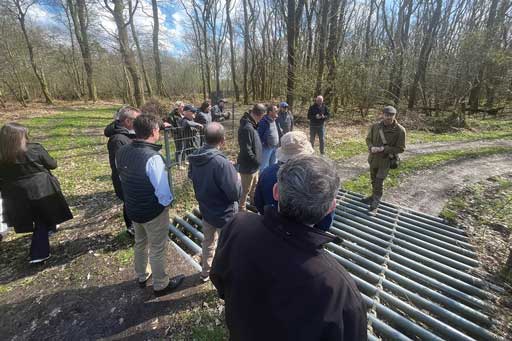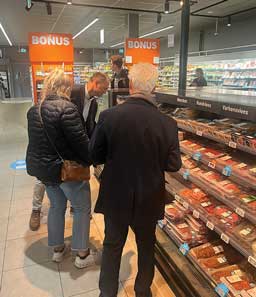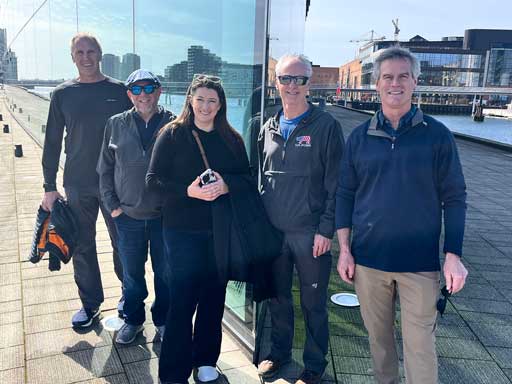National Pork Board (NPB) staff, board members, and a state pork association executive traveled across Denmark and the Netherlands April 5-13, 2024 to understand their swine industry firsthand.

During the trip, the group traveled to Padborg, Denmark, which is on the border of Denmark and Germany. During 2019, Danish producers cofunded the construction of a fence along the border and a truck safety wash as preventative measures to keep African swine fever (ASF) and wild boar out of the country. This fence stretches approximately 62 km (42 mi), 1.5 m tall, and 0.5 m below the surface. So far, ASF has not been detected in Denmark. The fence construction and truck wash are a product of collaboration between the swine industry and the government, which impressed the trip attendees. “When consensus is reached on an issue and the appropriate knowledge is available,” said Gordon Spronk, NPB board member, “leadership can make real change for the good of everyone, the entire industry.”

The group toured and met with professionals at Danish Crown, an internationally oriented Danish food company with butchery operations, processing, and sales of pork and beef. Danish Crown is a large importer of US pork and must pay the Pork Checkoff $0.35 per $100 value of each pig. The group was impressed by the Danish Crown’s business model and attention to value instead of volume while targeting profitable segments within their market.
They also toured the Danish Agriculture & Food Council and SEGES Innovation, an independent company focused on sustainable food production. Attendees heard from multiple experts on current topics of interest at SEGES Innovation, including research and development, strategy for the Danish pig sector, and DanBred genetic and breeding goals. The group was influenced by Denmark’s commitment to sustainability and science-based research to make business decisions.
The next stop was at Biogas Horsens, a bio-digestion plant that produces biogas from manure provided by local farmers and organic waste from the food industry. The biogas is upgraded to natural gas onsite. The group was fascinated by this modern approach to manure management and sustainable practices.
The last stop in Denmark was to Go’Gris sow farm, a self-sufficient hog farm that grows all necessary grain and forage to feed the 1000 sows that produce about 32,000 slaughter pigs annually. The group noted the high body condition of sows at this farm and their ability to farrow an average of 20 liveborn piglets per litter.
The group then traveled to Utrecht, Netherlands where they visited the US Department of Agriculture Foreign Agricultural Service, learning more about EU and German pig production from experts, and met with the Pig Improvement Company based in Germany. They also met with a swine research farm and Nutreco, a leading animal nutrition company with an emphasis on sustainability with several brands in their portfolio that are world leaders in their respective fields.

On their last stop, the group toured Westfort Plant, a family-owned processing plant that specializes in pork. Four different locations in the Netherlands process approximately 1200 tons of pork products per day and up to 300,000 tons annually. The group toured the newest processing plant in IJsselstein, which is the most modern and innovative using the newest software and technology to streamline the process.
“There is a convergence occurring in software with the result combining on-farm production data, performance data, management tools, and traceability solutions in a data warehouse,” Spronk said. “This software roll-up meets not only consumer and regulatory demands but helps everyone in the supply chain make better decisions for continuous improvement to achieve a sustainable, world-class pork chain.”
We believe that pork is an important part of a healthy, balanced, nutritious diet, pig and crop farming are sustainable, and the ethical treatment of our people and animals is key to a resilient food system. This international trip was an important touchpoint for many attendees to continue promoting our mission of building trust with consumers and adding value to US-raised pork. The lessons and key takeaways will be used by each attendee on their own farm and in their leadership position at NPB and state associations, representing more than 60,000 US pig farmers and making decisions using Pork Checkoff dollars.